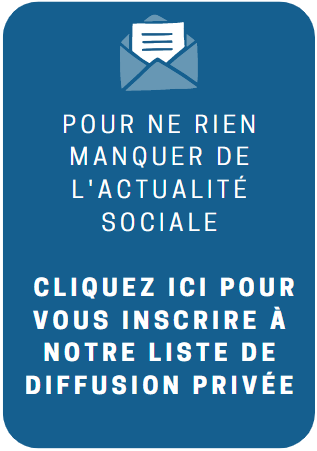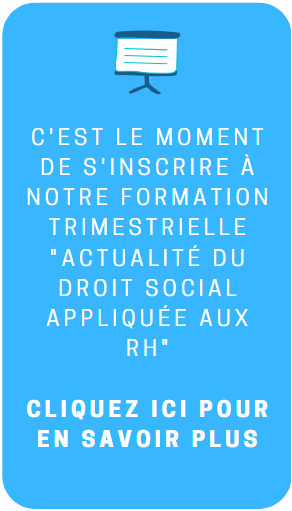
The company rules and regulations are a unilateral regulatory act of private law (n°87-42.396), issued by the employer, which applies to all employees of the company, whether they were hired before or after its entry into force.
1/ Companies subject to the obligation to draw up its own company rules and regulations
1. 1 The legal nature of the company
The article L.1311-1 of the French Labor Code specifies that the companies concerned by the obligation, are private law companies and public establishments of an industrial and commercial nature.
1. 2 The size of the company
According to the article L.1311-2 of the French Labor Code, the following are obliged to set up the company rules and regulations :
- Companies or establishments with a workforce of at least 50 employees since January 1, 2020.
- Companies or establishments with at least 20 employees before January 1, 2020.
The number of employees in the company or establishment must be reached during twelve consecutive months for the employer to be required to draw up internal regulations (article R.1321-5 of the French Labor Code).
Finally, companies or establishments that are not bound by the legal obligation may still set up company rules and regulations.
2/ The content of the company rules and regulations
The French Labor Code regulates the content of the company rules and regulations, while leaving the employer free to choose the clauses that he inserts.
2. 1 Mandatory content of company rules and regulations
The article L1321-1 of the French Labor code regulates the content of the company rules and regulations, which can only cover :
- Measures for the application of health and safety regulations in the company or establishment. For example, the internal regulations may contain clauses requiring particular employees to wear protective headgear during working hours.
- The participation of employees in the restoration of working conditions that protect the health and safety of employees if they have been compromised. For example, the company rules and regulations may contain a clause on the right of employees to withdraw from work.
- General and permanent rules relating to discipline. For example, the company rules and regulations must provide for all sanctions to which employees are exposed, with the exception of dismissal. They may also recall the employee’s obligation of loyalty.
The article L1321-2 of the French Labor Code adds that the company rules and regulations must contain provisions relating to :
- Employees’ rights of defense, which are necessary in the event that the employer uses its disciplinary power. Thus, the internal regulations must state that no sanction may be taken against an employee if he or she has not been summoned to a prior interview (article L1232-2 of the French Labor Code).
- Moral and sexual harassment as well as sexist behavior. For example, the company rules and regulations may recall the definition of moral harassment ;
- To the existence of the whistleblower protection scheme provided for in Chapter II of Law 2016-1691 of December 9, 2016 on transparency, the fight against corruption and the modernization of economic life.
2. 2 The prohibited content of the internal regulations
According to the legislator, the content of the internal regulations :
- May not be contrary to the laws, regulations and collective agreements and conventions with which the company or establishment must comply (article L1321-3 of the French Labor Code). For example, the company rules and regulations may not modify the conventional minimum wage.
- Must not infringe on the rights of individuals or individual freedoms that would not be justified by the task to be performed or proportionate to the aim sought. For example, a clause in the internal regulations that infringes on the right to marry is illegal (n°80-40.929). A clause limiting the right to strike of employees is also prohibited (n°08-43.603).
- Must not contain any discriminatory provision. This would be the case of a provision prohibiting women from continuing their career after the age of 50 (n°88-41.422).
- Is limited to the themes of the article L1321-1 dof the French Labor Code. Clauses relating to salary, for example, cannot be included.
3/ Examples of sensitive clauses in the internal regulations
3. 1 The clause relating to drug testing
The Council of State, by in a ruling dated December 5, 2016, has for the first time admitted the inclusion in the internal regulations of a clause implementing drug testing by saliva test.
The Council set six conditions for the implementation of this saliva test :
- Employees assigned to so-called “sensitive” positions may be subject to these tests. This may include employees who operate machinery, for example.
- The tests must be provided for in the internal regulations.
- The employer is bound by professional secrecy with regard to the results of these tests.
- Employees must be able to obtain a second medical opinion if they so request.
- The tests must be random.
- No other method must be able to establish that the employee is unfit to perform a task because of drug use.
These conditions seem logical since drug testing can be an invasion of privacy. By clearly identifying the conditions for the use of such tests, the Council of State creates a balance between invasion of privacy and safety, hygiene and health in the workplace.
UA parallel can also be drawn with clauses prohibiting the consumption of alcohol in the workplace.
3. 2 The neutrality clause
The neutrality clause is directly referred to in article L.1321-2-1 of the French Labor Code. It is a clause in the internal regulations aimed at prohibiting employees from expressing any religious, philosophical or political beliefs.
This clause could conflict with other fundamental rights such as secularism or freedom of expression. As a result, these clauses have given rise to significant litigation at both the national and European levels.
In the famous Baby Loup case (n°13-28.369), the Court of Cassation accepted the legality of a neutrality clause provided that it is :
- general and undifferentiated ;
- justified by the exercise of other fundamental rights and freedoms and by the nature of the tasks to be performed ;
- proportionate to the aim pursued
Outside of the company rules and regulations, the prohibition on manifesting one’s religious, philosophical or political beliefs can only be based on an essential and determining professional requirement according to the Court of Cassation (n°13-19.855), which implies tpwith the March 14, 2017 ruling buy the Court of Justice of the European Union.
4/ Formalities for the adoption of the internal regulations
4. 1 Formalities to be respected
The internal regulations are a unilateral act. This means that they are drawn up by the employer, who does not have to negotiate their content. On the other hand, they will only be valid and enforceable against employees if the formalities imposed by the Labor Code are respected.
The formalities to be followed are the following :
- The regulation must be drafted in the French language (L1321-6 of the French Labor Code).
- It must then be submitted to the Social and Economic Committee for its opinion (L1321-4 paragraph 1 of the French Labor Code).
- Note that failure to comply with this rule renders the internal regulations unenforceable against the employee, who is therefore entitled, in the event of a disciplinary sanction imposed on this basis, to claim the nullity of the latter in the context of an individual dispute (Cass. soc., May 9, 2012, n°11-13.687). Moreover, a trade union is entitled to act in the name of the collective interest of the profession to request in summary proceedings the suspension of the internal regulations introduced in the absence of this substantial formality (Cass. soc., 21 September 2022, n°21-10.718). On the other hand, a trade union is not entitled to ask the court of law, by way of an action on the merits, for the nullity of the whole of the internal regulation or its unenforceability against all the employees of the company, due to the failure of the employer to carry out this substantial formality, since the consultation of the CSE is not a condition for the validity of the internal regulation.
- When the internal regulations are amended by order of the labor inspector, the employer is not required to submit the amended text to the opinion of the employee representatives and the date of entry into force is not postponed (Cass. soc. June 26, 2019 n° 18-11.230 ; Cass. soc., June 23, 2021 n° 19-15.737).
- The regulations and the advisory opinion of the CSE must be communicated to the labor inspector. The latter may order the withdrawal or modification of certain provisions that are contrary to the law (article L1321-4 paragraph 3 of the French Labor Code).
- It is filed with the clerk’s office of the labor court of the company’s jurisdiction and is published in the workplace (articles R1321-1 and R1321-2 of the French Labor Code). It is also possible to post it on the doors of the premises.
The date of entry into force is determined by the internal regulations themselves and may not be less than one month after the formalities for filing and posting have been completed (article L1321-4 of the French Labor Code).
4. 2 Penalties for non-compliance with formalities
If the employer does not comply with the legal requirements, he is liable to :
- a fine provided for fourth class offences ;
- the nullity of the internal regulations ;
- Non-enforceability against employees: any termination based on non-compliance with this regulation would be unjustified ;
- an intervention of the labor inspectorate.



